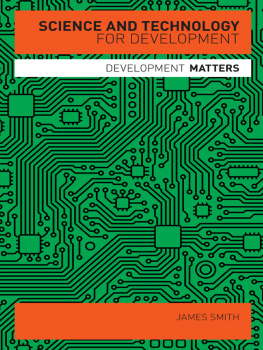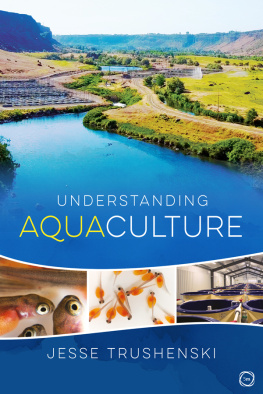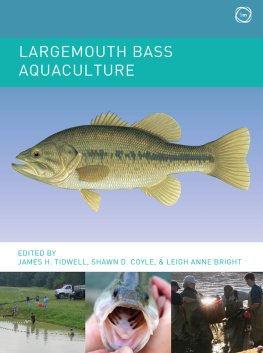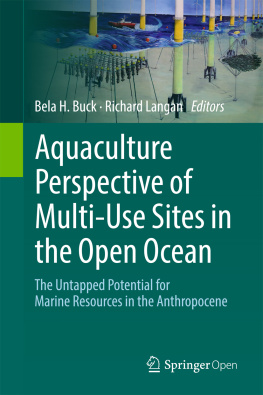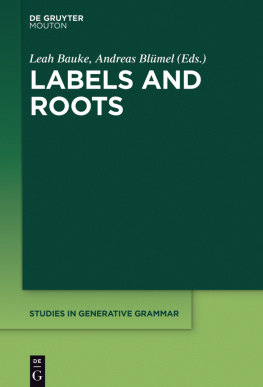Aquaculture Development in Less Developed Countries
Also of Interest
Aquaculture Economics: Basic Concepts and Methods of Analysis , Yung C. Shang
Coastal Aquaculture Law and Policy: A Case Study of California , Gerald Bowden
* Food From the Sea: The Economics and Politics of Ocean Fisheries , Frederick W. Bell
Food Security for developing Countries , edited by Alberto Valds
* From Dependency to Development: Strategies to Overcome Underdevelopment and Inequality , edited by Heraldo Munoz
The Politics of Pacific Island Fisheries , George Kent
Protein, Calories, and Development: Nutritional Variables in the Economics of Developing Countries , Bernard A. Schmitt
Future Dimensions of World Food and Population , edited by Richard G. Woods
Georges Bank: Past, Present, and Future of a Marine Environment , edited by Guy C. McLeod and John H. Prescott
*Available in hardcover and paperback.
Westview Special Studies in Agriculture/Aquaculture Science and Policy
Aquaculture Development in Less Developed Countries: Social, Economic, and Political Problems
edited by Leah J. Smith and Susan Peterson
Aquaculture may not be the panacea for the worlds food problems, but It has the potential to make important contributions to diet and incomes in some areas. This book, intended to improve planning for further development of aquaculture, examines the factors that can determine the success or failure of aquaculture projects in developing countries.
Focusing on Latin America, Africa, and the Middle East, the authors give specific examples of social, economic, and political constraints on aquaculture development, consider the acceptability of aquaculture products for consumption, look at income, production, and technology allocation, contrast fishing and aquaculture activities, and discuss appropriate organization of aquaculture enterprises. The case studies investigate aquaculture planning and projects in Costa Rica, Mexico, Sierra Leone, Botswana, Israel, and Egypt.
Leah J. Smith and Susan Peterson are policy associates in the Marine Policy and Ocean Management Program at the Woods Hole Oceano-graphic Institution. They and the other contributors offer perspectives shaped by backgrounds in the social and natural sciences, extension work, and government administration.
First published 1982 by Westview Press
Published 2018 by Routledge
52 Vanderbilt Avenue, New York, NY 10017
2 Park Square, Milton Park, Abingdon, Oxon OX14 4RN
Routledge is an imprint of the Taylor & Francis Group, an informa business
Copyright 1982 by Taylor & Francis
All rights reserved. No part of this book may be reprinted or reproduced or utilised in any form or by any electronic, mechanical, or other means, now known or hereafter invented, including photocopying and recording, or in any information storage or retrieval system, without permission in writing from the publishers.
Notice:
Product or corporate names may be trademarks or registered trademarks, and are used only for identification and explanation without intent to infringe.
Library of Congress Catalog Card Number: 81-71171
ISBN: 0-86531-235-4
ISBN 13: 978-0-367-01896-2 (hbk)
To H. Burr Steinbach
Many people helped in the preparation of this book. The initial impetus for the project came from the International Federation of Institutes of Advanced Study, with particular encouragement from Paul Fye and Sam NiIson. We thank also H. Burr Steinbach, Robert Morse, and David Ross for their support at the Woods Hole Oceanographic Institution during the meetings and workshops that were the forum for these papers and during preparation of the manuscript. Clarence Idyll, Nelson Marshall, and Courtland Smith made detailed and helpful comments on the papers, and Ann Martin provided invaluable assistance with the editing. Thomas Nunn helped to collect and organize the data used in the last chapter. Kaleroy Hatzikon, Ann Goodwin, and Ethel LeFave typed innumerable drafts of the manuscript. The workshops and preparation of the manuscript were supported by the Pew Memorial Trust; Department of Commerce, NOAA, Office of Sea Grant; and the Marine Policy Program at Woods Hole Oceano-graphic Institution.
Leah J. Smith and Susan Peterson
Aquaculture Development in Less Developed Countries
1
An Introduction to Aquaculture Development
Leah J. Smith
Susan Peterson
Aquaculture raising marine or freshwater animals and plants in controlled environments - has been suggested as one partial solution to world food problems. World food shortages have been characterized four ways: (1) there is an adequate amount of food but it is not distributed appropriately; (2) there are not enough food calories; (3) edible protein production is inadequate for proper nutrition; (4) there is enough food in an absolute sense, but specific types of food are not acceptable to various segments of the worlds population for reasons of physical incompatibility or culture. While the merits of the four viewpoints or problem definitions continue to be argued by scientists and politicians, there is agreement on the fact that food availability is a global problem, and that the severity of the problem increases annually. The chapters which follow illustrate ways in which aquaculture development addresses food shortages, and describe some of the social, economic, and legal limitations to aquaculture development, with particular focus on Latin America and Africa. We examine a range of problems encountered by aquaculture development projects, and suggest specific research and analyses to respond to these constraints.
Agriculture and Aquaculture
Following World War II there was a rapid increase in world population. The U.S. government responded to the anticipated increase in demand for food by supporting research on crops that grow rapidly and abundantly. The results of the research were incorporated into a development program known as the Green Revolution. It was intended to increase productivity in agriculture to such an extent that large food-deficit regions of the world could become self-sufficient. Improved strains of rice, wheat, corn, and other grains were developed and combined with fertilization and pest control programs, but the well-being of local populations in areas where these technologies were introduced usually did not improve. The Green Revolution, hailed widely in the 1950s as the solution to the world food crisis, failed to fulfill its promise (Miller 1977). The reasons for this failure were many.
In some cases the improved strain became a monoculture crop, replacing traditional mixed crops which had provided a diversified source of food to meet many local needs as well as to protect the community from too much dependence on a single crop. Instead of a mix of food production for local consumption, some communities grew only a single cash crop. The conversion of cash to needed food required distribution networks and the vagaries of a larger, unfamiliar marketing system.




